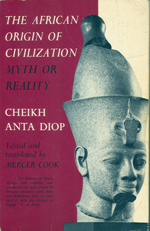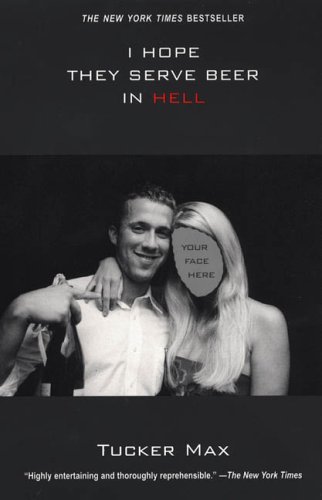- 12,264
- 51
- Joined
- Aug 8, 2007
George Orwell = Literature master.
Follow along with the video below to see how to install our site as a web app on your home screen.

Note: this_feature_currently_requires_accessing_site_using_safari
kix4kix wrote:
Guns Germs and Steel....
This master piece by Jarred Diamond was my most important book, non-fiction or other wise. It is so pivotal for anyone who is interested in socialscience. He is able to look at the myriad types of societies, stages of development, societal styles of organization and amid this staggering diversity findnot only patterns but a few and very straight notion, which are so consist that they are, in social science, as close as we can come to scientific laws.
Not only is it great from a technical, social sciences stand point, it also is entertaining because it is journey to what is, from our perspective, usuallybizarre and exotic. Despite being non-fiction, it feels like a great novel about an explorer in Africa, South America, Australia, Polynesia, India, The MiddleEast and of course, New Guinea.
The other non-fiction books that were extremely important was A History of Force by James L. Payne and it chronicles the rise and fall of many typesof applications of force. This is the first book of its kind, despite there being thousands of other books that are comprehensive surveys of everything fromwar to candy to sex to weaving, one of the most pervasive and certainly the most destructive action in human affairs, the application of or threat ofapplication of physical force, is never given its own comprehensive study.
The book is important because the final couple of chapters chronicle force based institutions, which are widely practiced, widely largely does not have manyviable alternative at the moment. We can now look back on human sacrifice, slavery and genocide as manifestly evil, unnecessary and as things whose absence isclearly beneficial. That is not the case with taxation. It is, at its heart, a crude confiscation of earned wealth. The fruit of people's labor must behanded over the state and its means of extracting that wealth is the threat of punishment.
However, we have no real viable alternative so the challenge is to not recognize that taxation is immoral, because it is (just like some saw the immorality ofimperialism, slavery, genocide, corporal punishment and conscription in its heyday), but to be a part of the same process that ended or curtailed things likehuman sacrifice, slavery, corporal punishment, imperialism, religious persecution and genocide. That is to say we must help our society evolve beyond taxation,trade restrictions, the selective service system, warfare itself and other applications of force that are widely practiced today and are seen as ranging from anecessary evil to honorable. That involves developing viable alternatives to many practices, which involve force but if totally abolished would be likely tocause even more misery than the application of force had caused (for instance, abolishing the military and all forms of law enforcement and/or taking away alltaxation and their sources of revenues would currently mean that poetry, chaos and terror would be unleashed on our society).
The vivid account of life daily life in a 13th Century French Town, by Joseph and Frances Gies, Life In A Medieval City, was very important to mebecause it really takes you back to every day life in the Middle Ages and it shows that people who lived 7 centuries ago are no smarter or not dumber than weare, they are no more virtuous nor more villainous than we are. People in past centuries were driven by the same things that drive us, fear, hope, love, sex,drugs, drink, glory, empathy, hatred and a desire to escape pain and boredom and sadness. It also shows that just because people lived in the past does notmean that they lived in times that were simple, by any means. Business, politics, rhetoric, social life, culinary traditions, medicine, literary and academicconventions, war, family life, relationships, social class, religion and everything else was more or less as arcane as the spheres of our own lives.
The top three books are either history, social science in general and political theory. There have been some important books that are about economics nonewould be in my top ten and any books in my top ten that would have been written by Economists like Thomas Sowell and Friedrich Hayek would be their books onsociety or political philosophy or theory. The reason is that books that look very broadly at society and how it evolves and functions and draws conclusionsthat are universal or near universal about society are pivotal because they set the context in which we can look at people responding to incentives and dealingwith the perennial dilemma of scarce resources.






Originally Posted by DanzInRealLife
Haven't heard of himOriginally Posted by bijald0331
Let's just say George Orwell didn't live to see 1984 and didn't own a farm.Originally Posted by DanzInRealLife
Originally Posted by bijald0331
I think OP needs to define nonfiction book for some peopleWho're you calling out?
For future references:
Non-fiction books can be about any subject, such as: how-to books, science books, history books, biographies, autobiographies and much more. Anything that is real and not made up.He a man of any importance to the US?




pilo1990 wrote:
That dude just put out his whole english... I hope you get an a but im not reading all that..
But a new world is a pretty good book... talked about religion.. And basically about our civilization and where we come from... great read
Is it that hard to imagine that I and others here can put together a few paragraphs easily, quickly and for reasons beyond satisfying the requirements for someintroductory writing class?
BTW, are the educational systems around the country doing so poorly that someone, over the age of 12 does not even know of George Orwell and/or does not knowof either Animal Farm or 1984? Have his two cautionary tales of omnipotent government been suddenly taken out ofthe curriculum by the teacher unions right after government is now in the hands of those with whom the teacher unions agree? (I am half joking here becausethey might decide that Orwell's books are bad since the Epithet of "Orwellian" is being used against their guy now and not George W. Bush;however, they would not be able to remove it that quickly).
Originally Posted by GSDOUBLEU
exact same book i was going to sayOriginally Posted by Nash
Malcolm X
a lot of people are put off towards the middle of the book where his rhetoric against white people gets a little spicy, but it's well worth reading all the way through.

Originally Posted by Rexanglorum
pilo1990 wrote:
That dude just put out his whole english... I hope you get an a but im not reading all that..
But a new world is a pretty good book... talked about religion.. And basically about our civilization and where we come from... great read
Originally Posted by Rexanglorum
pilo1990 wrote:
That dude just put out his whole english... I hope you get an a but im not reading all that..
But a new world is a pretty good book... talked about religion.. And basically about our civilization and where we come from... great read
I like it because it Dan Ariely doesn't tell you anything without given overwhelming evidence by way of his research and others. He breaks down experiments in easy to understand ways using straight forward and often anti-intuitive hypothesis. Plus its easy to read! Behind my cognition book, this is the 2nd most important book I've ever read.Originally Posted by KanyeWestJayZ4life

Predictably Irrational - By Dan Ariely.
Irrational behavior is a part of human nature, but as MIT professor Ariely has discovered in 20 years of researching behavioral economics, people tend to behave irrationally in a predictable fashion. Drawing on psychology and economics, behavioral economics can show us why cautious people make poor decisions about sex when aroused, why patients get greater relief from a more expensive drug over its cheaper counterpart and why honest people may steal office supplies or communal food, but not money. According to Ariely, our understanding of economics, now based on the assumption of a rational subject, should, in fact, be based on our systematic, unsurprising irrationality. Ariely argues that greater understanding of previously ignored or misunderstood forces (emotions, relativity and social norms) that influence our economic behavior brings a variety of opportunities for reexamining individual motivation and consumer choice, as well as economic and educational policy. Ariely's intelligent, exuberant style and thought-provoking arguments make for a fascinating, eye-opening read. (Feb.)
Copyright [emoji]169[/emoji] Reed Business Information, a division of Reed Elsevier Inc. All rights reserved.
This master piece by Jarred Diamond was my most important book, non-fiction or other wise. It is so pivotal for anyone who is interested in social science.
Same here. It's unfortunate.Originally Posted by Joseph Camel Jr
honestly i cant remember the last book i read
i am a meathead at heart


Originally Posted by DearWinter219
The bible